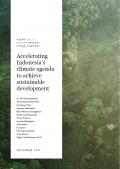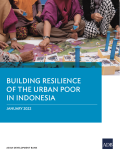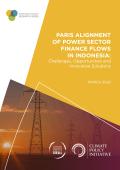While the social and economic effects of COVID-19 are likely to last for many years, careful recovery planning can mitigate negative long-term impacts. For Indonesia, reassessing its reliance on coal for electricity would be an important step in the country’s green recovery.
In early 2021, Indonesia’s Ministry of Energy and Mineral Resources indicated its intention to retire coal-fired power plants that have been in operation for more than 20 years. Other countries in the region are also on their way to reducing reliance on coal and propose reductions in their coal plant construction pipeline. This analysis models two options for Indonesia to reduce its planned coal-fired capacity, and the resulting impact on projected emissions, as well as the impact on premature deaths from air pollution.
The reduced electricity demand projections induced by the pandemic provides an opening for Indonesia to reassess capacity expansion plans and the existing power plant mix. This would lead to multiple benefits for climate mitigation and the advancement of the sustainable development agenda. The forthcoming electricity supply plan (RUPTL 2021-2030) provides a concrete opportunity to reassess the role of coal and put Indonesia on a pathway towards decarbonisation.




